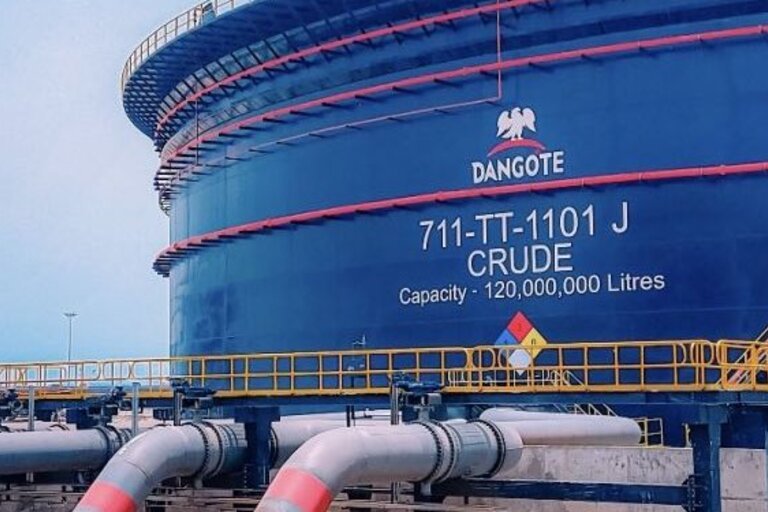Dangote Refinery has addressed recent media reports alleging that the company acknowledged receiving 60% of its crude oil supply from the Nigerian National Petroleum Corporation (NNPC).
In a statement released on Friday by its spokesman, Anthony Chijiena, Dangote Refinery clarified that it never accused the NNPC of failing to supply crude oil. Instead, the company expressed concern about the failure of International Oil Companies (IOCs) to follow the Nigerian Upstream Petroleum Regulatory Commission’s (NUPRC) instructions to enforce the domestic crude supply obligation fully.
According to the refinery, its crude requirement for September is 15 cargoes, of which NNPC allocated only six. Despite appeals to NUPRC and its intervention, the refinery has been unable to secure the remaining cargoes.
The refinery claims its effort in getting the IOCs operating in Nigeria to supply its crude requirements has been futile as they were directed to the IOCs’ international trading arms or informed that the cargoes were already committed elsewhere.
This situation according to the statement has forced the refinery to purchase Nigerian crude from international traders at a premium of $3 to $4 per barrel, which translates to an additional $3 to $4 million per cargo.
“We, therefore still insist that we are unable to secure our full crude requirement from domestic production and urge NUPRC to fully enforce the domestic crude supply obligation as mandated by the PIA. It is a law and they just need to comply,” the statement read in part.
The PIA, signed into law in 2021, aims to overhaul the Nigerian oil and gas industry by enhancing transparency and ensuring fair distribution of oil resources. Under the PIA, domestic crude oil supply obligations are meant to ensure that Nigerian refineries have access to the necessary crude oil supplies to operate efficiently.
The NUPRC has yet to respond to Dangote Refinery’s statement. As the situation unfolds, stakeholders in the Nigerian oil and gas industry are closely watching for any developments that may affect crude oil supply and pricing in the region.










